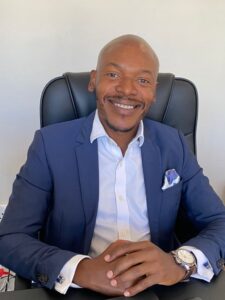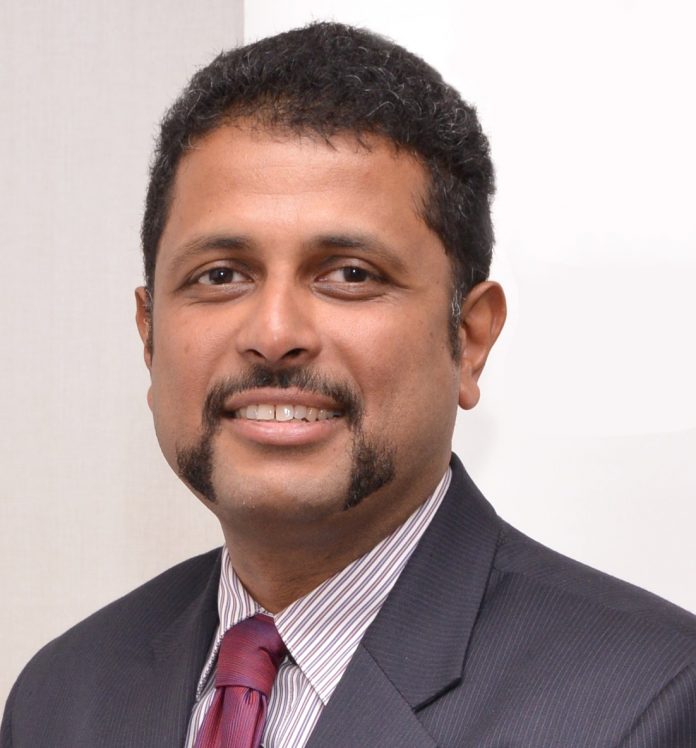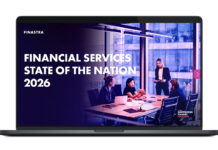Amidst the vast continent of Africa, Standard Bank Group stands as the continent’s largest bank by assets, boasting over 150 years of banking excellence. As Africa progresses towards a digital future, Standard Bank leads the way with a customer-centric approach, strategic partnerships and significant investments in digital transformation and advanced technologies. The bank’s unwavering commitment to innovation and customer satisfaction positions it not just as a key player, but as a visionary leader, actively shaping the future of banking across the continent.
This conversation between Khomotso Molabe, Group CIO – Personal and Private Banking at Standard Bank and Sriranga Sampathkumar, Vice President and General Manager – Middle East and Africa at Infosys Ltd. breaks down the bank’s longstanding success piece by piece and helps understand the strategic vision behind becoming one of the most progressive banks in Africa. With a remarkable presence across 20 different markets in Africa, Standard Bank stands as an inspiration for banks in the continent.
Sriranga: Thank you, KK, for dedicating your time to this conversation. To start with, could you help us understand some of the top drivers shaping the African banking fraternity?
KK: Our approach is determined by how we think about Africa’s growth. The easiest way is to look at the state of Africa now and how it will change over the next 7 to 10 years. Africa is a young and growing continent. We estimate that by 2030, we might have 1.7 billion people on the continent, and a majority of them will be young people looking to move from rural settings to urban areas. They will look towards banks to help them realise their dreams and aspirations.
This brings us to the second driver – the use of mobile technologies and cell phones. Africa is a continent with significant growth in terms of mobile penetration. With reduced data prices and emerging technologies, it becomes easier for Africa to leapfrog other markets. However, the core focus is on how we enable this young population to realise their dreams and aspirations, which shall collectively revolutionise the continent.

Sriranga: Standard Bank’s growth and its presence across multiple countries is well-known. Since Africa is such a large continent, banks must have a solid infrastructure to support this growth. Could you tell us about the bank’s infrastructure to facilitate customer engagement, operations and growth across the continent?
KK: We are a pan-African financial services company, operating in 20 complex and different markets. We need to have an anchor to approach markets that already have scale and desirable growth and markets where have just entered and beginning to grow.
Our strategy has three key anchors. The first, and perhaps the most important is transforming client experience. The second is delivering efficiencies. When both of them are done together, we’re able to deliver well to our shareholders. Our investments in technology infrastructure are driven by client wins. We value winning and differentiation first, and then focus on creating efficiencies as it doesn’t help to be a very efficient bank if you don’t have clients. Hence, it is observed that in many markets where we have good client engagement, it’s a result of engaging with our clients quickly.
Moving down the technology stack, we have partnerships with experts. For example, Finacle is a key partner for us. We run core banking across 16 countries. We will never be experts in core banking, which is why we need a strong partnership that allows us to deliver the three pillars of our strategy.
Sriranga: There’s an ongoing digital evolution and market disruption, including in Africa. Like M-Pesa in Kenya, many digital initiatives are happening across mobile and internet in various countries. How does Standard Bank intend to approach this digital disruption, and what steps do you think are going to help you?
KK: Today, everywhere you go, you hear about digital transformation, and all our competitors and partners approach it differently. As Standard Bank Group, we want to remain both a human and a digital bank, enabling us with flexibility to solve our clients’ problems. So, there can never be a scenario where we are either a digital-only bank or a human-only bank. There are some geographies where mobile adoption is low, especially smartphones. Here, we will go with a solution that works on a normal analog phone but also ensure that it works with our physical branches or contact centers as well. So, we will always be an omni-channel provider of services in many instances.
For high growth markets, we again strategise according to our clients’ requirements. We will either invest on our own, invest with partners, or look at specific ecosystems where we’ve got advantages over other people. For example, a large portion of Standard Bank, 20%, is owned by ICBC Bank of China. So, when it comes to trade between Africa and China, we obviously have certain advantages because of that relationship. We can leverage that relationship to help informal traders in Lagos to source goods and services and make them more competitive. Therefore, the reason for them to be our clients is much more than just having a bank account.
Sriranga: Looking forward, what do you think are the three or four key areas Standard Bank will focus on in the coming years?
KK: Let’s break it down into three horizons: the next 3 years, 3 to 5 years and beyond. In the current horizon, we need to invest heavily in digitalisation initiatives to save our customers’ time. By giving back time to our customers and automating routine tasks, we can unlock possibilities for our colleagues to meaningfully engage with clients and better understand their problems as our clients don’t come to us just for banking; they are striving to attain certain outcomes.
Then we move to the next set of things, which is to deeply know our customers – what I call personalisation. While customers give us lots of data, most organisations can just remember when it’s your birthday. We want to be able to anticipate customers’ behavior and personalise at scale. In the next horizon, we leverage this trust built over the years as core to fulfill our customers’ needs. For instance, in the housing ecosystem in South Africa, customers come to us for a mortgage bond, but they are actually looking to build a home for their family. We built a solution that helps them search for a convenient house, helps with the mortgage, and finally helps maintain it over time.
This paves the way for us to focus beyond-banking opportunities, generating the next set of revenues to sustain us in the third horizon.
Sriranga: Finally, Infosys Finacle has been your partner for a long time. What are the key things you look for in this partnership, and what are your expectations?
KK: When we look at Infosys Finacle, we want to ensure that the fundamental aspect that brought us together remains intact. For instance, when we started this journey, it was all about finding the right core banking platform that will run across countries. After we found success there, we realised that the ecosystem has changed. We needed Finacle to continuously provide the right technology to each country and remain a key advisor to us.
So, we keep a close eye on how Finacle is evolving its platform over time and make sure it remains relevant, flexible and scalable, allowing us to continuously scale our business. Our partnership needs to be agile and responsive to evolving requirements and market dynamics. We expect Finacle to be a partner equipped with the ability to move with agility and flexibility while we understand our clients better and move accordingly.
Sriranga: As we conclude our insightful discussion, I want to extend my heartfelt gratitude to Khomotso Molabe for his valuable insights. With eye-opening insights, he aptly described how Standard Bank is setting a benchmark for all other African banks in an ever-evolving banking landscape.











